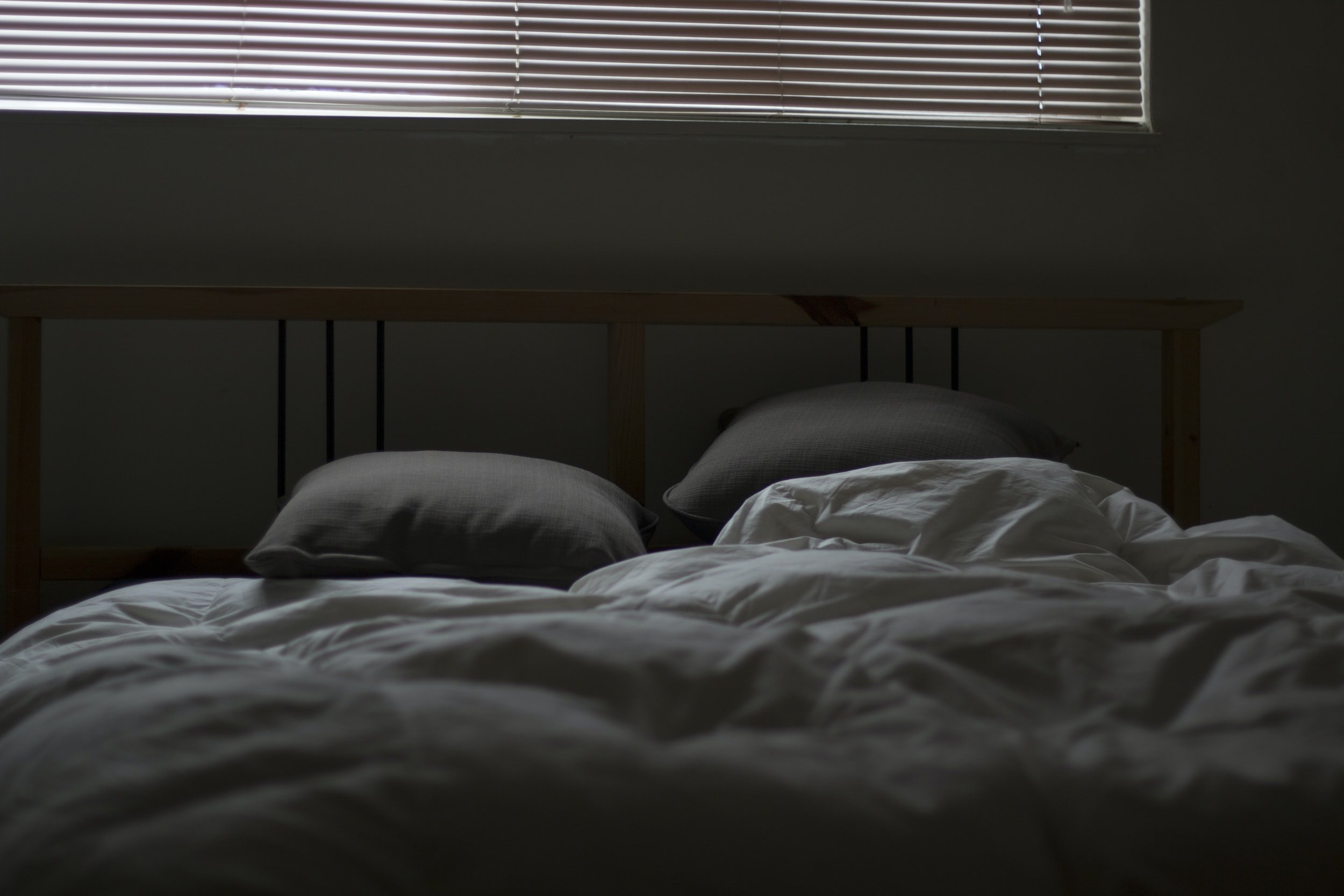Sleep: what can help and what may not
Sleep is a massive area of research and there are many experts in this field who are carrying out fascinating work which is providing us with a deeper insight into the mechanics of it. While I’m not one of these experts, I have been somewhat obsessed about the area for a long time, probably since when I first started studying circadian rhythms at university. It was a real eye opener (excuse the pun), when I learnt that someone may produce more or less lactate performing at the same intensity at different times of the day. Not only have I been focused on learning more about sleep to help my own sporting performance and health, the athletes I coach won’t be at their optimum if they don’t get enough rest so it’s something that I aim to help them with too.
There is still much to learn in this field and experts are still finding out more about it. While we know sleep is a restorative process, no one really knows the exact reason why we sleep. But what we do know, is that humans are the only species on the planet that actively denies themselves of this essential function. As I said already, I’m not an expert, but I have spent a long time digesting the research and have put into practice many of the recommendations to help aid sleep, some of which have been more effective than others. So, if like me, you want to perform better in sport and life, hopefully this article will give you some practical guidance about what you should and shouldn’t be doing.
a good night’s sleep starts the minute you wake up
Sleep consistency:
Going to bed at the same time matters. The big buzz concept in the sleep world right now is “sleep consistency”. There seems to a physiological benefit from going to sleep at the same time and waking up at the same time. The closer you are to the times from the day before, the better. We thrive on routine and getting ready to go to sleep is a process. If you start going to bed at the same time each night, you’ll naturally start to feel tired at this time and it’ll become natural for this to happen. Going to bed at different times throughout the week makes it very tricky for your body to know what’s happening and this often results in people lying awake, not able to fall asleep. So, here’s some tips:
· Decide a time that you’re going to go to bed at each night through the week and deviate from it as little as possible, even at the weekend;
· the notion of “catching up” on sleep is heavily flawed as it breaks your sleep consistency;
· think about what you’re going to do 1-2 hours before you go to bed. As Kobe said, “a good night’s sleep starts the minute you wake up”. This also means don’t try and exercise late in the evening, especially high intensity as the sympathetic stress will prevent you from sleeping;
· you need to remove things which are making your mind active like working, watching stimulating TV, trying to problem solve or think about matters which might create concern;
· our body lowers in temperature when we fall asleep so having a warm bath or shower about an hour before bed can actually help us fall asleep faster because the rise and the fall of our core temperature assists with the process;
· I’ve found camomile tea is one of the few things you can take which actually assists with sleep and no many people who advocate it;
· the half-life of caffeine is around about 5 hours so think very carefully when you should be drinking coffee to if you don’t want to affect your sleep;
· magnesium supplementation can help with muscle relaxation and some say it helps improve the quality of sleep, but the evidence is lacking here; and
· make sure your room is dark and cool. Lighting will disrupt your sleep and very warm rooms are hard to sleep in, your bedroom should be a bit like a cave.
Screens:
We’ve mentioned it above, but screens are their own topic. While you might say you’ve got a blue light filter on your phone, you don’t know what all the other light is doing and it’s not so much the blue light, but what you see on the screen:
· Looking at your phone before bed is a bit like leaving your front door open. You’re opening yourself up to anything that can pop up on your screen; a work email, text message that’s asking you to do something, social media post that makes you concerned or anything that takes you away from the process of relaxing and falling asleep;
· the same goes for TV. I actually find watching some TV before bed very relaxing if it’s a certain type of programme. However, any time I watch some sort of drama or anything that’s faster paced, I can’t sleep; and
· don’t look at screens in your bedroom as that’s where you should be going to sleep and those distractions shouldn’t be in there.
What should you eat before bed?
This is a very hotly debated topic. Many suggest that you shouldn’t eat 2-3 hours before bed while others recommend having something before going to sleep:
· I typically like a light snack before bed like Greek yoghurt with a little bit of honey as I find it helps me sleep better, but maybe it’s just the fact that I do this each night and my body sees this as a signal for bed time;
· the idea of not eating before bed is that digesting food will potentially impact sleep and a theory that relates to this is that eating before bed will spike your blood glucose. At some point during the night when blood glucose falls, you’ll wake up as a response; and
· avoid alcohol at all costs, as there’s no two ways about it, your sleep and recovery will be impacted by it.
Again, this comes down to consistency and creating a set bed time routine. Simply eating at the same time each night will help you form a good process and assist with sleep. Try a few different things here and see what works, but once you find it, stick to it.
Should you use a sleep tracker?
There’s a lot of money to made in sleep trackers these days and brands like Whoop are billion-dollar companies. My advice is you have to think carefully about how you’re going to use one and if it’s going to actually benefit you:
· There’s some pretty clear evidence that using a tracker, like Whoop, changes people’s behaviours and makes them more conscious about getting better sleep, only a good thing;
· it can also help people understand what’s going on and what variables are affecting sleep;
· time in bed for example is not a measure of sleep, how long you actually sleep for is the key. Someone could be in bed for 10 hours and sleep for 6, while another could be in bed for 8.5 hours and sleep for 8, who’s going to feel better in the morning;
· the flip side is that people can obsess over data and interpret it in the wrong way. I’ve heard people getting genuinely panicked about sleep figures, not the best solution to help you sleep; and
· it’s obvious that while someone can make money from selling you a product, you always have to take what they say with a pinch of salt. So, it might be a helpful device for you to use, but decide on why you’re going to use and understand what it’s telling you.
What will lack of sleep do?
As mentioned already, sleep is a restorative process and it’s essential to make us healthy and perform at our optimum. This doesn’t matter whether you’re an Olympian or running your own business. You can’t burn the candle at both ends, something will give, and it’s usually your work, health or sporting endeavours which will pay the price.
A lack of sleep will raise stress levels (adrenaline and cortisol) which will raise your heart rate and blood pressure, your blood glucose levels will be higher, you’ll crave more sugary foods, find it difficult to lose weight, your mood may be suppressed, you may snap at people faster and your motivation will be affected. One fascinating recent study also showed that for every 45minutes of sleep debt occurred, cognitive function was decreased the following day by 10%! So, if you’re wondering why you’re finding it hard to perform and make good decisions when you’re tired, that’s your answer.
Now there are some situations and individuals who have a lot of the control taken out of their hands. Parents with young children, doctors working shifts and other working professionals who work very long hours have it seriously against them. However, many wear lack of sleep like a badge of honour and this culture needs to stop. I have first-hand seen what the effect of lack of sleep does in the most extreme situations and it’s not good. I also see athletes who are pushing themselves to the limit but not getting the results they want because they simply aren’t getting enough rest. The athletes I work with who prioritise sleep generally have higher motivation levels, perform closer to their best, seem to be happier, can control their weight better and get injured less.
What fascinates me, is that while there are factors out with many people’s control, as described above, I see some athletes who have much more challenging schedules and demands than others, get better sleep than those with less stressors or strains. So, I’ll repeat the line from the intro, why is it that humans are the only species on the planet that actively denies themselves of this essential function? Hopefully this article gives you some useful tips on how you change your habits to make this part of your life better. Sleep is free and is the most powerful way to improve performance in sport, while also making you feel better in your daily life. As always, please comment if you have any questions.


